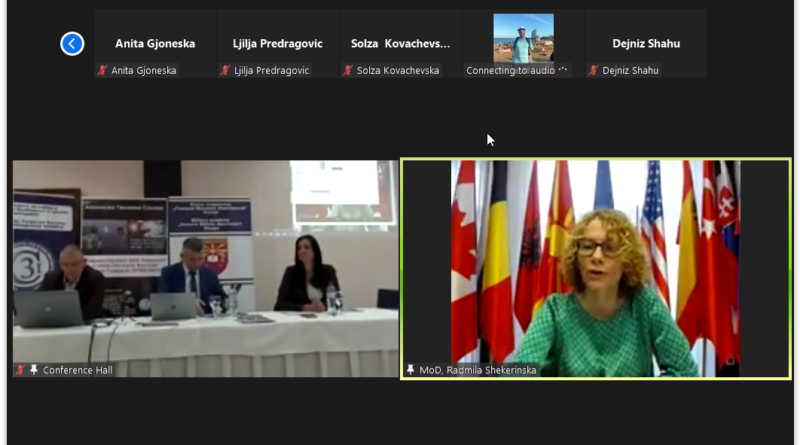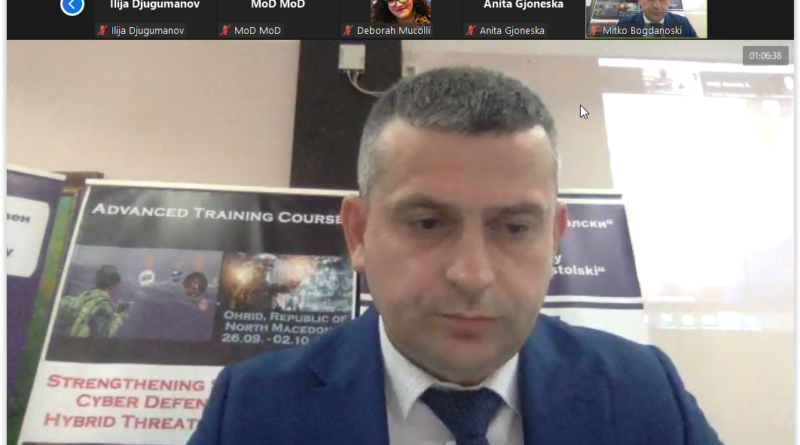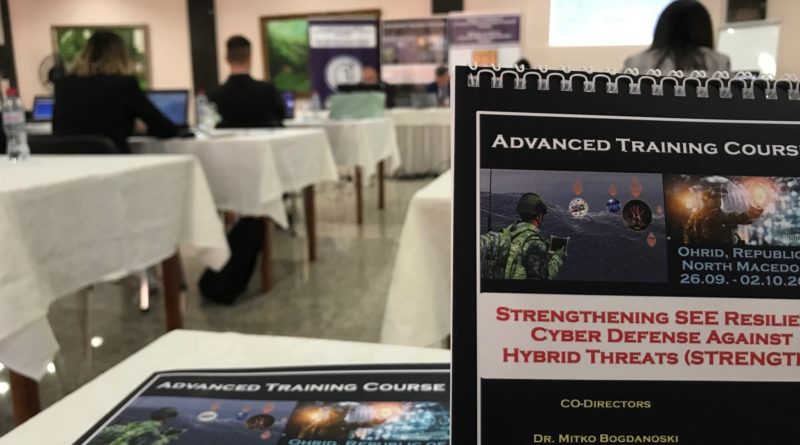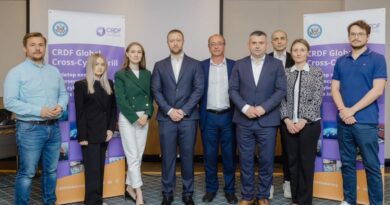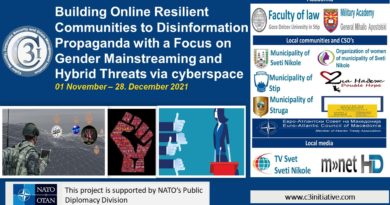NATO SPS ATC “STRENGTH” – Opening Of The Event And 1st Working Day (27.09.2021)
In the period from 27th September to October the 1st 2021, the Cyber Security, Corporate Security & Crisis Management initiative (C3I) together with the Military Academy ’’General Mihailo Apostolski’’ – Skopje, Republic of North Macedonia and the ’’Little Mama Labs’’ from Bosnia and Herzegovina are conducting the hybrid event envisioned as an Advanced Training Course spanning over 5 working days. The co-directors of the event are Prof. Dr. Mitko Bogdanoski, Military Academy ’’General Mihailo Apostolski’’ – Skopje and C3I –Skopje, and Prof.Dr.Sc. Sabina Baraković, Little Mama Labs, Bosnia and Herzegovina.
This ATC has brought together experts and decision-makers from the relevant state institutions in the NATO member and non-member states with a goal to provide a forum for discussion and sharing best practices and set grounds for raising the awareness about the Alliance and SEE evolving complex threat environment and establish a foundation for long-term collaboration on a multidisciplinary level among the defence and security experts and academia.
The goal of this activity is to set a path for establishing and creation of SEE Network of defence security. The first block of the ATC allows a deeper understanding of how state and non-state actors acquire hybrid threats, how to identify the hybrid methods that are used and particularly how NATO’s prepare, deter and a defence strategy will help SEE governments in countering hybrid threats, specifically via cyberspace and why it needs strengthened coordination among international organizations, especially between NATO and EU.
The opening of the ATC event featured keynote addresses by highly important speakers including Senior Guest’s Address:
- HE Radmila Sekerinska Jankovska, Minister of Defence, Republic of North Macedonia
- HE Olivera Injac, Minister of Defence, Montenegro
- Dr. Deniz Beten, Senior SPS & Partnership Cooperation Advisor
The event started with introductory remarks by the co-directors, who underlined the necessity to discuss hybrid threats through cyberspace, their constant evolution and expected developments in the foreseeable future. Moreover, they pointed out how central cooperation in the SEE region is in countering hybrid threats in the ever-evolving landscape, with an emphasis on complementary efforts and non-duplication.
HE Radmila Sekerinska Jankovska, Minister of Defence, Republic of North Macedonia, in her speech pointed out that the threats we face in the 21 century make up for an entirely different security environment, so our defence strategies need to be just as dynamic and adaptable. She stressed that NATO continuously invests in its strategy in countering hybrid warfare and stands ready to defend all Allies against any threat, whether conventional or hybrid. She stated that having in mind the immense significance of cyber security in the overall contemporary security environment, there is a strong commitment to investing in its progress, thus strengthening the Alliance’s resistance in general. In this context she announced that efforts to launch the new Institute for Cyber Security and Digital Forensics within the Military Academy “General Mihailo Apostolski” – Skopje are being finalized with the purpose of training and educating all cyber security professionals on a national and regional level, thus becoming an educational hub in the area of cyber security and digital forensics.
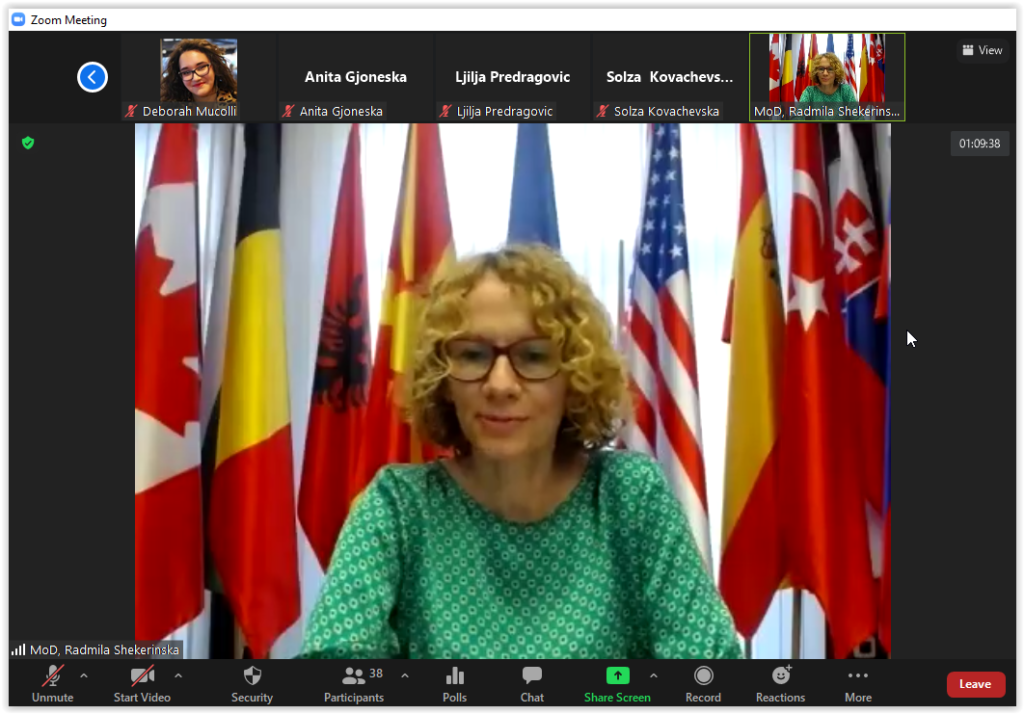
HE Olivera Injac, Minister of Defence, Montenegro, in her address outlined that the aim of the ATC is to stimulate trainees to understand that hybrid-based threats in general and via cyberspace do not only require new capabilities, but also new partners, new processes and, above all, new thinking. Therefore, she stated, the ATC will serve as a first step in the creation of a SEE Network of defence security and academic experts on building resilience against hybrid warfare capabilities that can work across borders with other NATO and Partners’ experts and link state-of-the-art research and practice. Furthermore, she emphasized the immensely important role the new Institute for Cyber Security and Digital Forensics within the structure of the Military Academy will have in building capacities in this field both nationally and regionally.
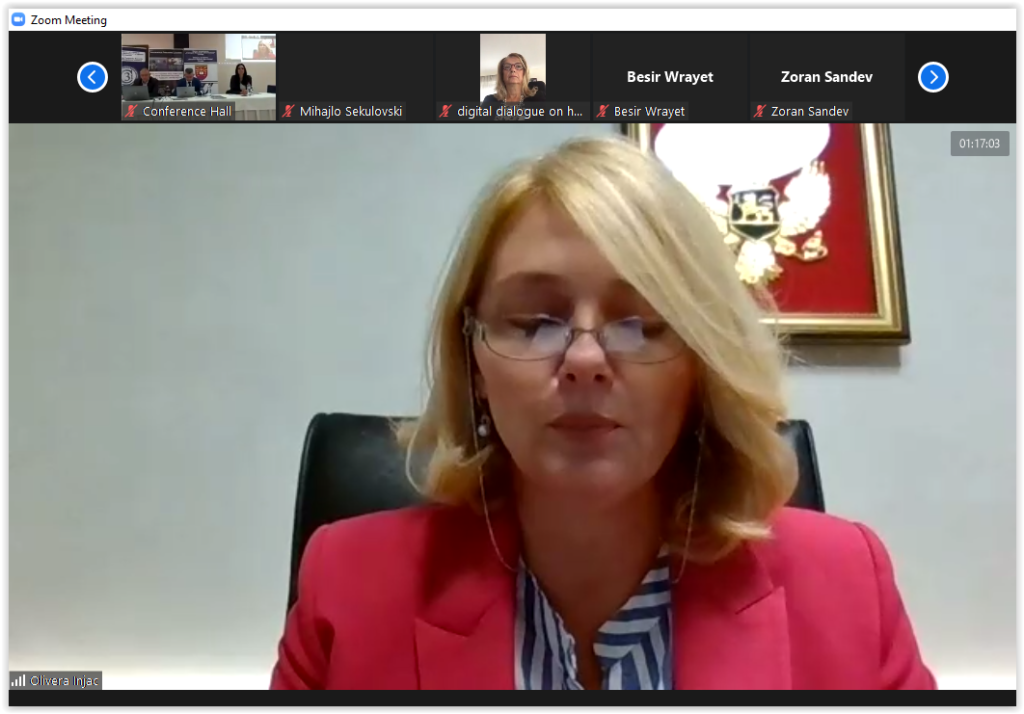
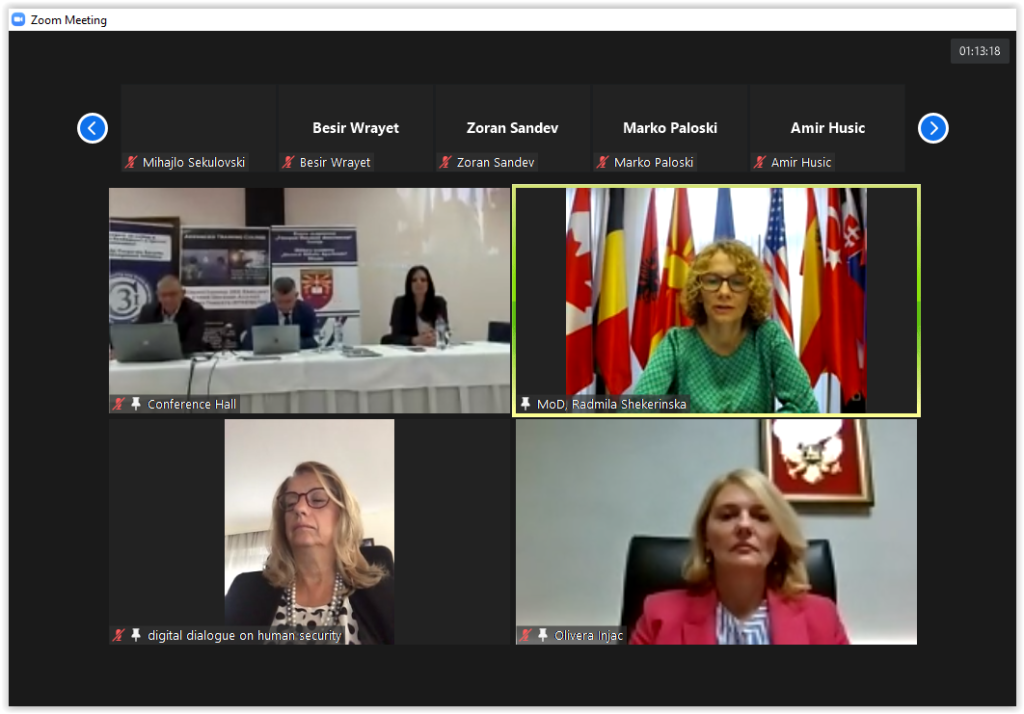
Dr Deniz Beten, Senior SPS & Partnership Cooperation Advisor, stated that the NATO SPS programme has the determination to support efforts stimulating the discourse aimed at establishing a platform for continued cooperation in countering hybrid threats in cyberspace.
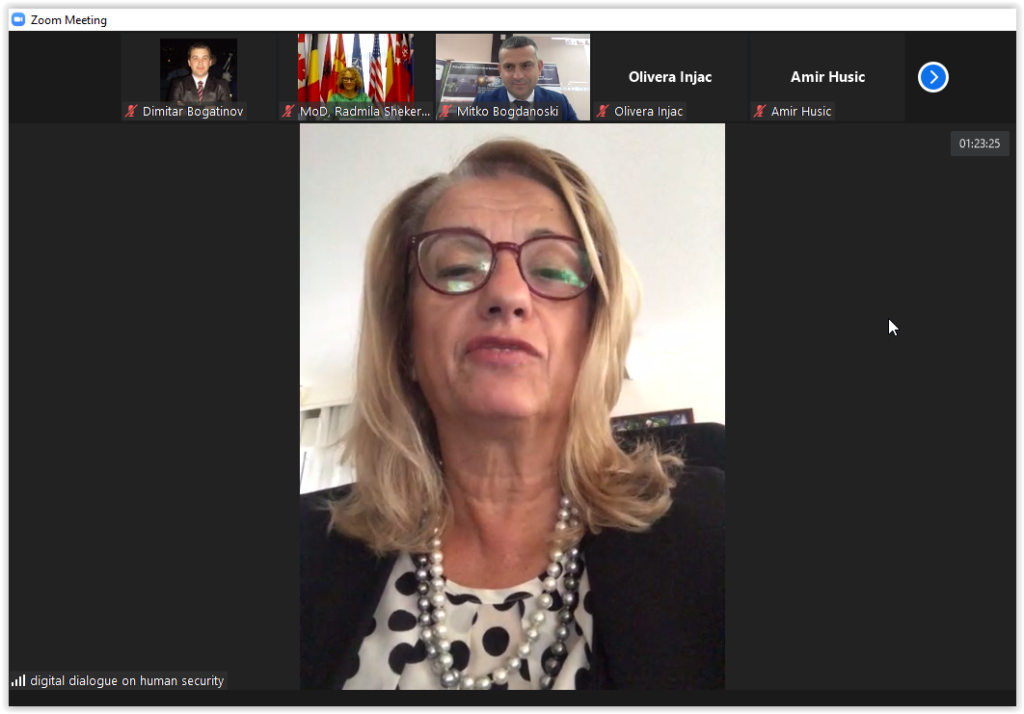
The first round of lectures started with Prof. Dr. Velizar Shalamanov, Bulgaria, a Member of the Bulgarian National Assembly and a Deputy Director of the Institute of Information and Communications Technologies since 2018.
He provided detailed current arrangements on the NATO developments and useful references for a cyber response. Focusing on the governance, the organization, he shared his experience through the years in developing NATO Cyber Defense capability, presenting the key principles and conclusions with a specific critical overview on the main problems and the means they should be addressed with.
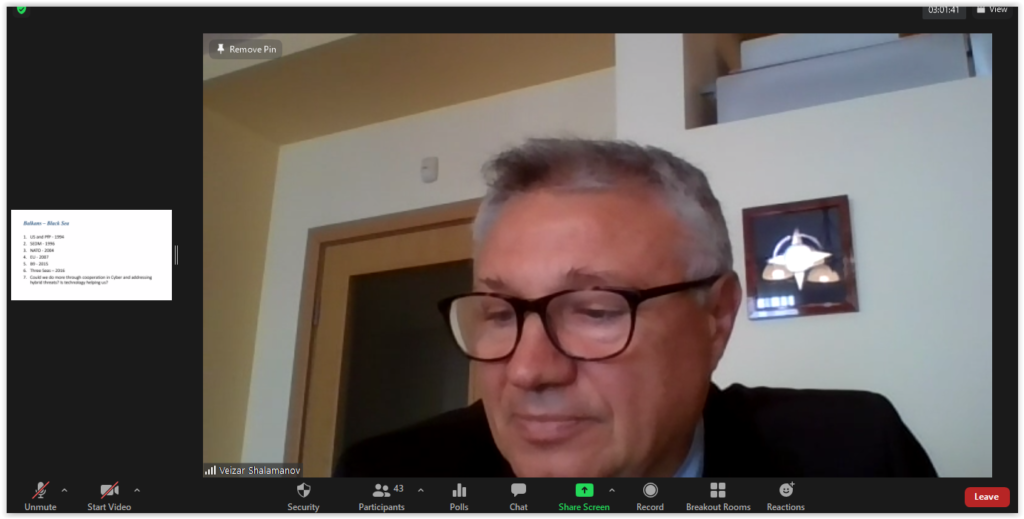
Rasmus Hindrén, Head of International Relations, European Centre of Excellence for Countering Hybrid Threats, extensively explained how and why the networking establishment holds such great importance for practitioners and experts while upholding the academic standards, what the global trends are, the challenges, the old threats in the new environment concentrating on hybrid threats and the way they endanger the contemporary world, outlining the ends and the countermeasures that are to be undertaken.
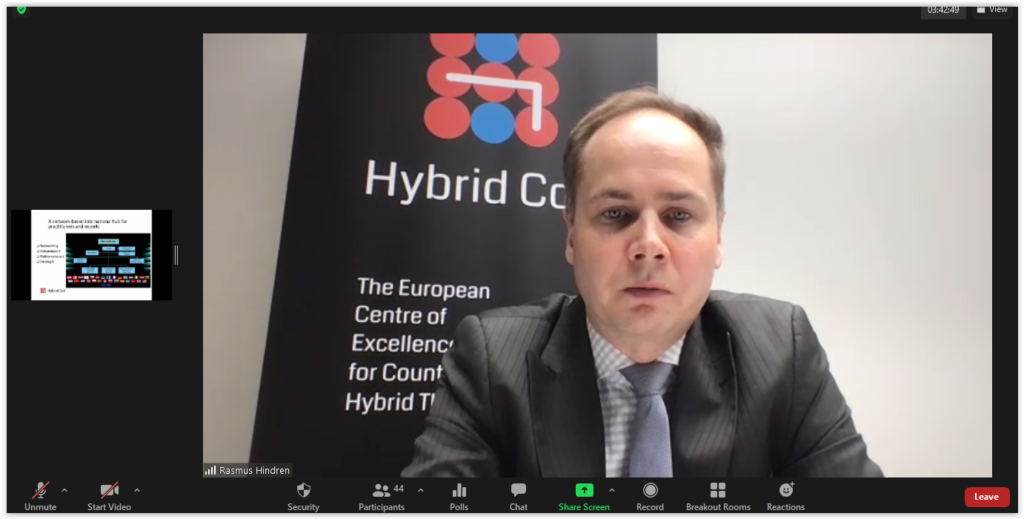
Prof. Dr. Mitko Bogdanoski, Dean at the Military Academy “General Mihailo Apostolski” in Skopje, Managing Director and Consultant of CYSEG, and Co-founder of Cyber Security, Corporate Security, and Crisis Management Initiative – C3I, Republic of North Macedonia, fragmented the abuse of the modern technology, the exposure, the vulnerability, the pros and cons of the actual technology used and moreover, shared the concerns of the future use of technologies and how the technologies are shaping the battlefield. He also pointed to the interdependencies between the cyber attacks’ success and the overall human nature, as well as the countermeasures and main pillars for protecting cyberspace.
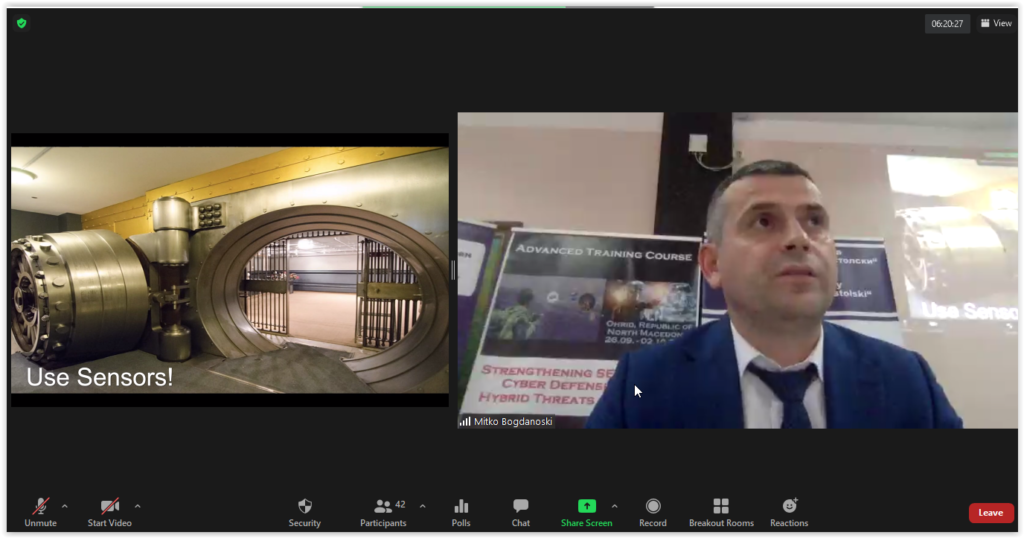
Dr. Kenneth Geers, Atlantic Council, NATO Cyber Centre, an analyst at Very Good Security, Canada, gave a chronological review of his own experience related to cyber security and geopolitics, the threats to democracy, rule of law and human rights with specific emphasis on the importance of the international institutions and the strategy and tactics they have the capacity to provide, concluding with practical recommendations.
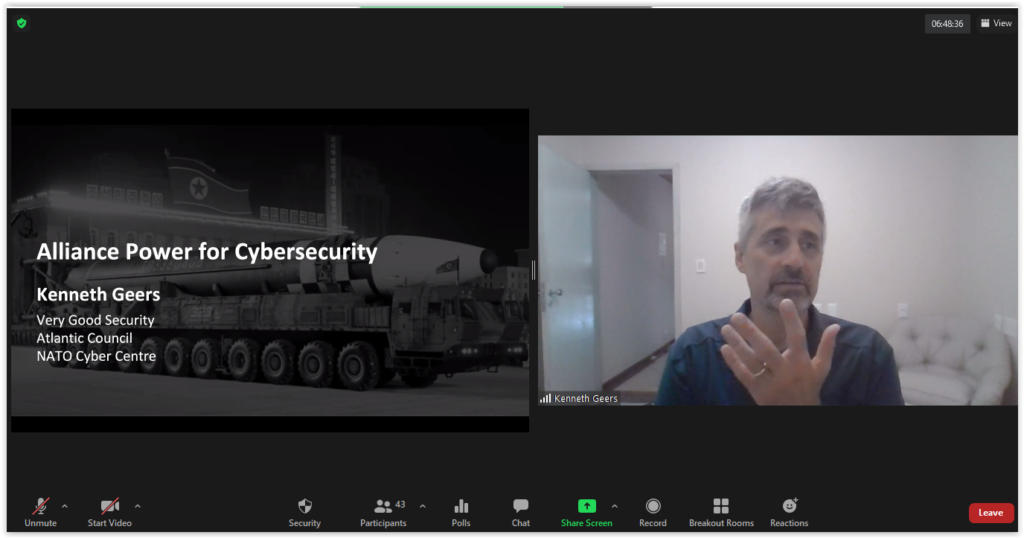
Professor Dr. Alan Brill, USA, a Senior Managing Director and founder of the Cyber Risk practise of Kroll spoke about the lessons learned based on handling cyber-incidents in the public and private sector while giving an extensive explanation of modern hybrid attacks by presenting different examples, explicitly pointing to the special focus that needs to be given to the private sector the public sector depends on.
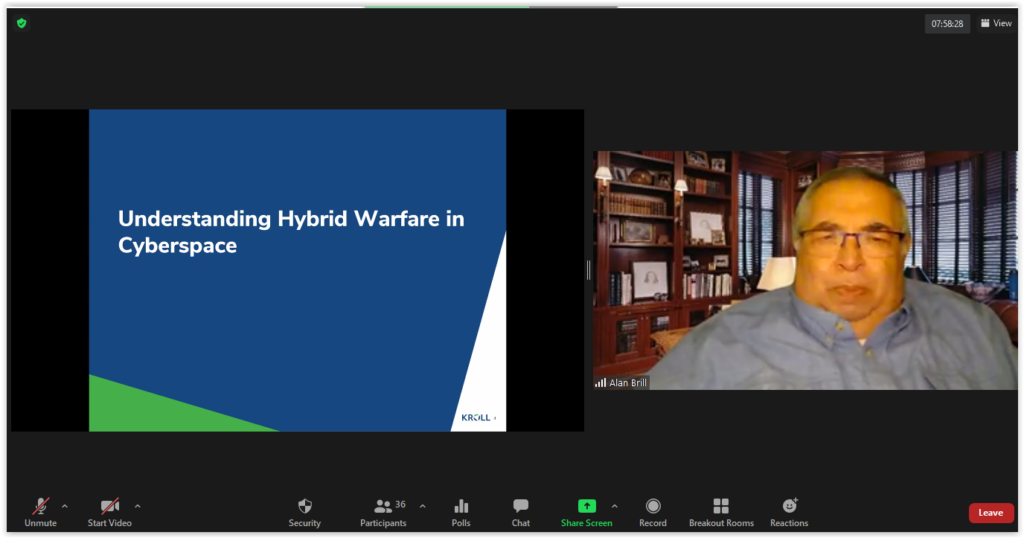
The first day of the ATC provided the attending participants both onsite and online with an invaluable insight delivered via the lectures of esteemed speakers, tackling various perspectives of the area.

